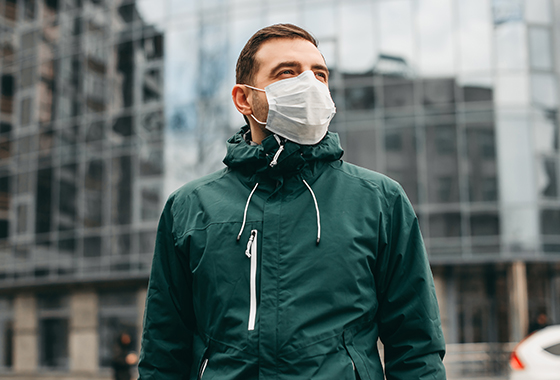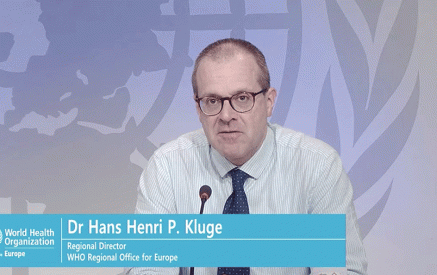“The member States’ health systems will have to strive to adapt in order to be able to better cope in the future with a health emergency such as COVID-19, while respecting fundamental rights and freedoms,” said Andrej Hunko (Germany, UEL) who was appointed yesterday as rapporteur on the lessons from an effective and rights-based response to the COVID-19 pandemic by the Committee on Social Affairs, Health and Sustainable Development, and who participated in a hearing on this issue.
All panellists concurred on the unprecedented and serious nature of the COVID-19 public health crisis and the need for co-operation and coordination at all levels to contain the pandemic. “Choosing between public health and the economy was a false dichotomy,” they said.
“Drawing lessons from this unprecedented health crisis is instrumental in how we respond to such situations in the future,” said Stella Kyriakides, European Commissioner for Health and Food Safety, who underlined the importance of action at global, multilateral and European level. “It is only through solidarity and co-operation across borders, by working on a united front, that we can defeat the virus,” she said. She explained that the European Commission had organised a ‘Coronavirus Global Response pledging conference’, which had brought together partners from around the world to mobilise funds to support work on diagnostics, therapeutics and vaccines for coronavirus. “So far, it has raised €7.4 billion – €1.4 billion of which was pledged by the European Commission,” she announced.
Commissioner Kyriakides also recommended to make Europe’s health systems stronger and more self-sufficient. “We need a clear EU strategic approach to decrease our dependency on import of active pharmaceuticals ingredients and medicine outside the EU as well as protective equipment, establish the means to produce essential medicines within the EU, and respond better to shortages of medicines,” she said.
Read also
According to Dunja Mijatović, Council of Europe Commissioner for Human Rights, despite many unknowns, we can already “highlight some of the fundamentals of a national health system which seeks to meet the need of the entire population and which builds resilience against public health emergencies”. In particular, “universal health coverage should be the foundation for ensuring everybody’s right to the protection of their health, and human dignity and human needs need to be put at the centre of social care,” she said, adding that no one should be left behind. The crisis is challenging because it is a “medical and an ethical crisis”. She believes that “a strong and resilient health system which reaches disadvantaged people”, is prepared for effective responses to public health emergencies. In addition, she stressed that mistakes of the previous economic crisis in diminishing health system capacity should not be repeated.
According to Dr David Nabarro, Special Envoy on COVID-19 to the World Health Organization Director-General, the pandemic presented a cascade of challenges which the world was only beginning to face. He called on everyone not to underestimate this disease: it was essential to put in place comprehensive defense mechanisms, such as preventing the virus from moving from one person to another, through physical distancing as well as face protection and respect of basic hygiene rules. “It is also necessary to quickly and effectively separate people with the disease from others, to trace their contacts, namely, to disrupt the chains of transmission of contamination as soon as possible. To protect lives and limit the spread of the virus, a new social contract and proper leadership is needed” he said, while stressing the importance of sustaining livelihoods, community services and hospital services.
Rebecca Katz, Professor and Director of the Center for Global Health Science and Security at Georgetown University (USA), presented a list of ten priorities for strengthening global ability to respond to public health emergencies going forward. She recommended strengthening multilateral leadership to prevent the next pandemic, in particular at the United Nations, including possibly by putting in place a permanent, designated facilitator in the Office of the UN Secretary-General. “We should also re-examine the International Health Regulations to reframe global governance of disease and explore mechanisms for compliance,” she said. She believes that global health security interventions must be data driven and she called for continued support for research and development, including during emergencies.
PACE




























































